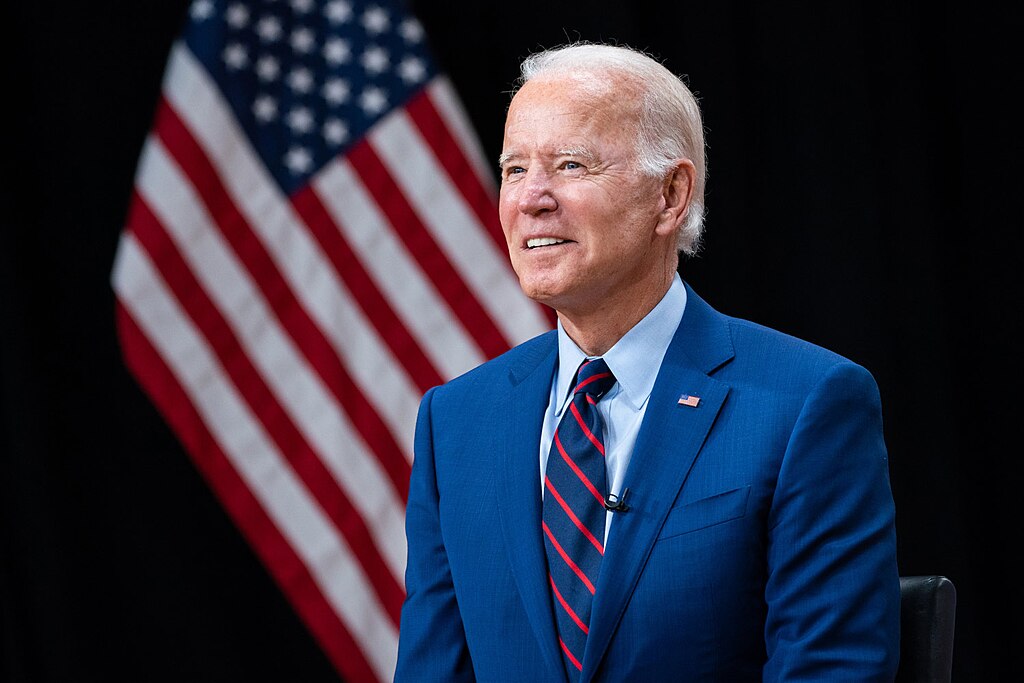President Joe Biden has revealed that internal pressure from within the Democratic Party, including influence from former House Speaker Nancy Pelosi, was a significant factor in his decision to withdraw from the 2024 presidential race. In an interview on CBS Sunday Morning, Biden acknowledged that concerns from key Democrats about his potential impact on their re-election chances ultimately led him to step aside, marking a dramatic shift in the political landscape ahead of the next election cycle.
During the interview, Biden, 81, candidly discussed the circumstances that led to his withdrawal, emphasizing the growing unease among Democratic leaders in both the House and Senate. According to Biden, there was widespread apprehension that his continued candidacy could weaken the party's chances in critical races, potentially endangering their control of Congress. This concern, he noted, became a central issue in discussions among party elites.
One of the most notable revelations from the interview was Biden’s direct mention of Pelosi. The former Speaker of the House, who has long been an influential figure in Democratic politics, is rumored to have played a key role in orchestrating the push for Biden’s exit. This marks a rare moment of public acknowledgment of the behind-the-scenes dynamics that often shape political decisions at the highest levels.
Biden’s comments come after months of speculation about tensions between him and Pelosi. Reports have circulated that the two had a falling out, particularly as Pelosi urged Biden to reconsider his bid for a second term. While Pelosi has publicly expressed her respect and admiration for Biden, the rift between them appears to have persuaded him to step down.
In a previous interview, Pelosi downplayed any discord, insisting that she had not actively campaigned for Biden’s exit but had responded to inquiries from concerned colleagues. Despite her efforts to maintain a cordial tone, the underlying tensions were evident as Biden spoke openly about the pressures he faced from within his party.
Biden’s decision to endorse Vice President Kamala Harris as his successor adds another layer of complexity to the unfolding political drama. His endorsement came shortly after his announcement to withdraw, signaling a potential shift in party strategy as Democrats prepare to face off against a still formidable Republican opponent.
The interview also highlighted Biden’s reflections on his time in office and his initial intentions when he first ran for president. He referred to himself as a “transition president,” acknowledging the challenges of aging and the need to pass the torch to the next generation of leaders. This candid admission underscores the personal and political factors influencing his decision to step back.
As Biden steps away from the race, the Democratic Party faces the task of rallying around a new candidate while navigating the complex legacy of Biden’s presidency. The internal dynamics that led to his withdrawal will likely continue to shape the party’s strategy in the 2024 election.



 Netanyahu to Meet Trump in Washington as Iran Nuclear Talks Intensify
Netanyahu to Meet Trump in Washington as Iran Nuclear Talks Intensify  Iran–U.S. Nuclear Talks in Oman Face Major Hurdles Amid Rising Regional Tensions
Iran–U.S. Nuclear Talks in Oman Face Major Hurdles Amid Rising Regional Tensions  Federal Judge Restores Funding for Gateway Rail Tunnel Project
Federal Judge Restores Funding for Gateway Rail Tunnel Project  China Warns US Arms Sales to Taiwan Could Disrupt Trump’s Planned Visit
China Warns US Arms Sales to Taiwan Could Disrupt Trump’s Planned Visit  Trump Says “Very Good Talks” Underway on Russia-Ukraine War as Peace Efforts Continue
Trump Says “Very Good Talks” Underway on Russia-Ukraine War as Peace Efforts Continue  Norway Opens Corruption Probe Into Former PM and Nobel Committee Chair Thorbjoern Jagland Over Epstein Links
Norway Opens Corruption Probe Into Former PM and Nobel Committee Chair Thorbjoern Jagland Over Epstein Links  Missouri Judge Dismisses Lawsuit Challenging Starbucks’ Diversity and Inclusion Policies
Missouri Judge Dismisses Lawsuit Challenging Starbucks’ Diversity and Inclusion Policies  Pentagon Ends Military Education Programs With Harvard University
Pentagon Ends Military Education Programs With Harvard University  Jack Lang Resigns as Head of Arab World Institute Amid Epstein Controversy
Jack Lang Resigns as Head of Arab World Institute Amid Epstein Controversy  U.S. Announces Additional $6 Million in Humanitarian Aid to Cuba Amid Oil Sanctions and Fuel Shortages
U.S. Announces Additional $6 Million in Humanitarian Aid to Cuba Amid Oil Sanctions and Fuel Shortages  Trump Allows Commercial Fishing in Protected New England Waters
Trump Allows Commercial Fishing in Protected New England Waters  U.S.-India Trade Framework Signals Major Shift in Tariffs, Energy, and Supply Chains
U.S.-India Trade Framework Signals Major Shift in Tariffs, Energy, and Supply Chains  New York Legalizes Medical Aid in Dying for Terminally Ill Patients
New York Legalizes Medical Aid in Dying for Terminally Ill Patients  Trump’s Inflation Claims Clash With Voters’ Cost-of-Living Reality
Trump’s Inflation Claims Clash With Voters’ Cost-of-Living Reality  India–U.S. Interim Trade Pact Cuts Auto Tariffs but Leaves Tesla Out
India–U.S. Interim Trade Pact Cuts Auto Tariffs but Leaves Tesla Out  U.S. to Begin Paying UN Dues as Financial Crisis Spurs Push for Reforms
U.S. to Begin Paying UN Dues as Financial Crisis Spurs Push for Reforms  Nighttime Shelling Causes Serious Damage in Russia’s Belgorod Region Near Ukraine Border
Nighttime Shelling Causes Serious Damage in Russia’s Belgorod Region Near Ukraine Border 































